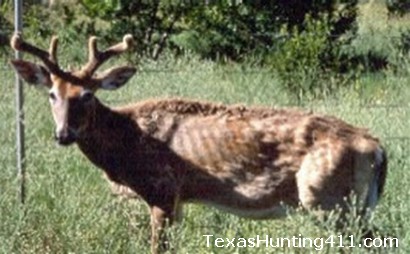There may be less than 3 months until white-tailed deer hunting season opens in Texas, but a lot can happen in 3 months, especially when talking about a disease such as anthrax. The first Anthrax case in Texas for 2014 has been confirmed in a goat in Kinney County. Of course, anthrax is nothing new to the area. The county has seen anthrax outbreaks before, and the impact tends to be localized.
The property where antrhax was detected is located four miles north of Bracketville. The Texas Animal Health Commission (TAHC) has quarantined the premises. TAHC rules require proper disposal of affected carcasses and vaccination of other cattle on the premise prior to release of the quarantine.

More on Anthrax Disease
Anthrax is a bacterial disease caused by Bacillus anthracis, whichis a naturally occurring organism with worldwide distribution, including certain parts of Texas. It is not uncommon for anthrax to be diagnosed in livestock or wildlife in the southwestern part of the state. A vaccine is available for use in susceptible livestock in high risk areas.
Acute fever followed by rapid death with bleeding from body openings are common signs of anthrax in livestock and deer. Carcasses may also appear bloated and appear to decompose quickly. Livestock or animals displaying symptoms consistent with anthrax should be reported to a private veterinary practitioner or a TAHC official. If affected livestock or carcasses must be handled, producers are encouraged to follow basic sanitation precautions such as wearing protective gloves, long sleeve shirts and washing thoroughly afterward to prevent accidental spread of the bacteria to people.
State of Texas Take on Anthrax
The TAHC will continue to closely monitor the situation for possible new cases across the state, both in domestic animals and native wildlife such as white-tailed deer. Producers are encouraged to consult their veterinary practitioner or local TAHC office if they suspect their animals are affected with anthrax, or if they have questions about the disease or the vaccination of their livestock,” said Dr. T.R. Lansford, TAHC Assistant Executive Director for Animal Health Programs.